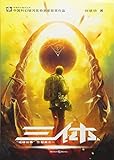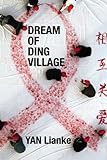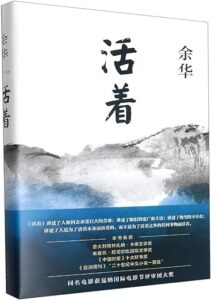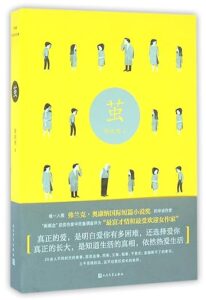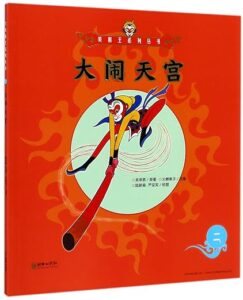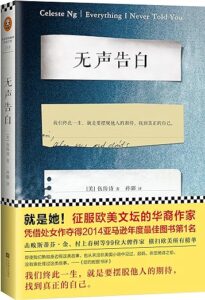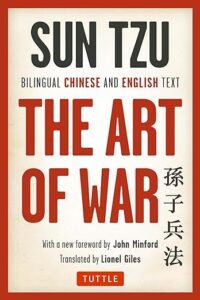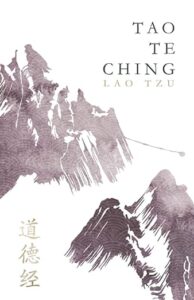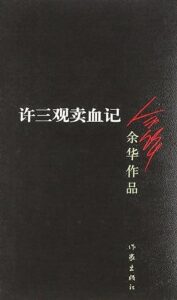
20 Best Chinese Books for Intermediate and Advanced Learners
The world of Chinese literature offers a lot of gems, including both classics and contemporary options.
There are also Chinese versions of some excellent English novels you may already be familiar with.
We’ve compiled a list of 20 of the best Chinese books for intermediate and advanced learners covering fantasy, sci-fi, poetry and more.
If you’re not quite ready to jump into a novel or longer piece of literature, check out these Chinese books for beginners first.
Contents
- 1. “Tiny Times 1.0” by Guo Jingming
- 2. “The Wolf Totem” by Jiang Rong
- 3. “Decode” by Mai Jia
- 4. “Tongwan City” by Gao Jianqun
- 5. “Three-Body Problem” by Cixin Liu
- 6. “Dream of Ding Village” by Yan Lianke
- 7. “Wild Grass” by Lu Xun
- 8. “The Hunger Games 3: Mockingjay (Chinese Edition)” by Suzanne Collins
- 9. “To Live” by Yu Hua
- 10. “Cocoon” by Zhang Yueran
- 11. “The Monkey King” by Wu Cheng En
- 12. “Everything I Never Told You (Chinese Edition)” by Celeste Ng
- 13. “The Devil and the Orchid” by Jiu Lu Fei Xiang
- 14. “The Art of War” by Sun Tzu
- 15. “Tao Te Ching” by Lao Tzu
- 16. “The Chronicle of a Blood Merchant” by Yu Hua
- 17. “The Collected Songs of Cold Mountain” by Hanshan
- 18. “The Bilingual Essays of Lin Yutang”
- 19. “Heaven Official’s Blessing” by Mo Xiang Tong Chou
- 20. “Red Sorghum” by Mo Yan
- Why You Should Start Reading Chinese Books
- Tips on How to Learn Chinese Through Books
- And One More Thing...
Download: This blog post is available as a convenient and portable PDF that you can take anywhere. Click here to get a copy. (Download)
1. “Tiny Times 1.0” by
Written by the famous young author 郭敬明 in what appears to be the first of a series, “Tiny Times 1.0” explores the lives of the wealthy.
Centered on four female university students, it gives a materialistic view of how they deal with friendship, family, work and their future.
If you’re a fan of “Sex and the City” and “Meteor Garden,” then this book’s for you.
2. “The Wolf Totem” by
Depicting the Mongolian tribe as the wolf and the Chinese farmers as the sheep, Wolf Totem provides us with a realistic view of the lives of the people belonging to two different nations.
“The Wolf Totem” also gives us a preview of each of their culture, lifestyle and beliefs.
3. “Decode” by
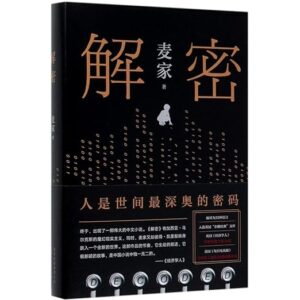
If you’re intrigued by cryptology, the Secret Service and thrill-seeking adventures then, be sure to pick up this book.
“Decode” depicts the story of a genius who was recruited by the Chinese secret service and praised because of his extraordinary skills but later shunned due to a simple mistake.
4. “Tongwan City” by
“Tongwan City” combines fragments of China’s history, culture and religion in this bestselling novel.
Comparing the patience of a Buddhist monk and the recklessness of a Hun warlord, the story teaches us the most effective way of building an empire, one that will last throughout its legacy.
5. “Three-Body Problem” by
For sci-fi lovers out there, this one’s for you.
The first novel in a trilogy, “Three-Body Problem,” tells the story of an alien race struggling for survival and the search for their last hope to save their race, eventually landing on Earth.
6. “Dream of Ding Village” by
Based on a true story, this novel depicts the harsh reality that unfolded in China after the AIDS epidemic ravaged a small town as a result of blood-selling businesses.
The story is told through the voice of a dead child—his father one of the most dangerous blood buyers. His grandfather was pained by the loss of his grandson and ashamed by his own son’s part in his death.
7. “Wild Grass” by
Wild Grass is a book comprised of 23 prose poems written between 1924 and 1926 by the famous historical Chinese writer, Lu Xun.
This book is a great way to help readers learn more advanced words in Mandarin while enriching themselves with classic literature.
8. “The Hunger Games 3: Mockingjay (Chinese Edition)” by
The best-selling trilogy of The Hunger Games is a favorite worldwide with several different translated copies of the series that you can find online.
One translated version that has been well received is by Gengfeng, and it’s “The Hunger Games 3″ Mockingjay.”
If you’ve already read the book in English and/or watched the movie, it will be easier to follow along in Chinese.
9. “To Live” by Yu Hua
“To Live” f
10. “Cocoon” by Zhang Yueran
“Cocoon” is a contemporary Chinese novel exploring the complexities of modern life and relationships in a rapidly changing society.
The story revolves around four characters navigating love, ambition and identity in the bustling city of Beijing.
Zhang Yueran’s poignant narrative captures the intricacies of human emotions against the backdrop of China’s dynamic cultural landscape.
11. “The Monkey King” by Wu Cheng En
This is a classic Chinese literary masterpiece from the 16th century. It has been adapted many times, including into the manga/anime series Dragon Ball.
The novel follows the adventures of Sun Wukong, the Monkey King, as he accompanies the monk Xuanzang on a pilgrimage.
Filled with mythological elements, this allegorical tale explores themes of enlightenment, virtue and the triumph of good over evil.
12. “
This widely loved page-turner unravels the mystery surrounding the death of Lydia Lee in 1970s Ohio.
Ng skillfully delves into the complexities of family dynamics, cultural identity and societal expectations with plenty of suspense and drama.
This popular novel is appropriate for intermediate to advanced learners.
13. “The Devil and the Orchid” by
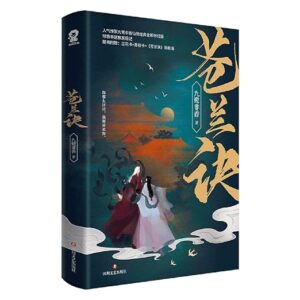
This Chinese fantasy novel weaves an enchanting tale of love and destiny among supernatural realms and magical landscapes.
Set in a world where demons and gods coexist, the story follows the forbidden romance between a mortal girl and a devil.
The novel explores themes of sacrifice, the struggle between good and evil and the enduring power of love across celestial boundaries.
14. “The Art of War” by Sun Tzu
“The Art of War” is a timeless Chinese classic on strategy and military tactics composed over 2,000 years ago.
Its wisdom extends beyond warfare to encompass broader principles of leadership, conflict resolution and other aspects of life.
The version linked above is a bilingual Chinese and English edition, providing useful support for language learners.
15. “Tao Te Ching” by Lao Tzu
“Tao Te Ching” is a foundational text of Taoism and an ancient Chinese classic offering timeless wisdom.
It offers profound insights into the philosophy of living in harmony with the Tao, the fundamental force of the universe. Written in poetic verses, it encourages a path of inner virtue and understanding.
The bilingual edition linked above has English and Chinese side by side.
16. “The Chronicle of a Blood Merchant” by Yu Hua
Yu Hua is an influential Chinese author who bravely critiques society through satirical storytelling.
This novel is set against the backdrop of mid-20th-century China during Mao’s Cultural Revolution. It follows the life of Xu Sanguan, who must sell his own blood to support his family.
Yu Hua’s work stands as a powerful testament to resilience during a difficult time in history.
17. “The Collected Songs of Cold Mountain” by Hanshan
This is a collection of beautiful Chinese poems by the highly talented Buddhist poet Hanshan and two of his very close friends who were also gifted poets.
This particular book has received top reviews for its excellent translations that make all of the poems very understandable and easy to read (not to mention inspiring).
18. “The Bilingual Essays of Lin Yutang”
This book of bilingual essays on Chinese culture and society spanning from the 1930s to 1950s is great for nonfiction fans and history buffs.
It’s one of the more difficult books on this list, but it can be an easy read if you’re above the intermediate level.
Each of these essays is written in both Mandarin and English so you can look back and forth to match the words and sentences up.
19. “Heaven Official’s Blessing” by
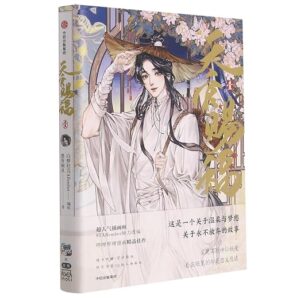
This captivating Chinese fantasy novel is set in a richly imagined world of gods and magic. It blends humor, romance and adventure and has gained immense popularity.
The story follows Xie Lian, a fallen god seeking redemption, as he navigates political intrigue, divine mysteries and unexpected alliances.
The book comes with beautiful illustrations, a sticker sheet and a bookmark. You can also watch the donghua series adaptation of the novel on Netflix.
20. “by Mo Yan
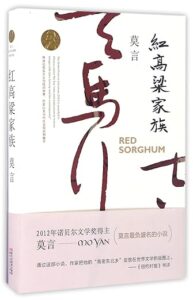
“Red Sorghum” is a powerful Chinese novel set against the backdrop of war and revolution.
It explores the intertwined lives of characters in a rural sorghum wine distillery, capturing the brutal realities of war and the indomitable spirit of the Chinese people.
Mo Yan’s lyrical prose and evocative storytelling create a mesmerizing tale and a look into Chinese history.
- It enhances your vocabulary. Reading a Chinese novel helps you see and learn a variety of Chinese characters, which not only expands your vocabulary but also demonstrates their structure in sentences.
- It helps retain what you’ve learned. Language learners often forget what they’ve learned as time progresses. If you’re not immersing yourself in the language daily, it can be tricky to recall certain words or phrases. To avoid this, it’s best to pick up a book occasionally and immerse yourself through reading.
- It helps improve your sentence structure. Books provide you with a variety of sentences—narrative, descriptive, informative and conversations. You’ll benefit from reading, and you’ll get a stronger sense of the different ways to position your characters.
- It’s fun and relaxing. There’s nothing more relaxing than reading a book. Grab a copy of the latest novel by your favorite author translated into Mandarin, and have fun learning the language.
- You can do it anywhere, at any time. Whether you’re reading your favorite Chinese novel on your Kindle, on your laptop, or physically holding a book in your hand—reading can be done anywhere, at any time.
Tips on How to Learn Chinese Through Books
- Read out loud. When you pick up a Chinese book to read, practice pronouncing the characters by reading the text out loud. It not only improves your concentration but also helps you retain what you’ve read.
- Look for context clues. Instead of searching for the meaning of the Chinese characters each time you stumble upon an unfamiliar word, look for context clues instead. If the same word keeps reappearing, look it up to confirm its meaning.
Then, find the word in use in other Chinese content, like the videos on FluentU. The more you use new words in use naturally, the better you’ll learn them.
FluentU takes authentic videos—like music videos, movie trailers, news and inspiring talks—and turns them into personalized language learning lessons.
You can try FluentU for free for 2 weeks. Check out the website or download the iOS app or Android app.
P.S. Click here to take advantage of our current sale! (Expires at the end of this month.)
- Stick to the Chinese text. Don’t depend on the English translation. The purpose of picking up a Chinese novel is to read the content in its intended language—Chinese—and learn as you’re reading.
- Read and reread. Practice makes perfect! It’s such a cliché but still very much applicable to all of us. While reading in a new language may be challenging, it helps you retain information to memory that you’ll be able to recall later. And, it’s all a part of the learning process.
Whether you’re a fiction fan or you prefer non-fiction, there’s something on this list for everyone.
Choose an option or two and enjoy reading some of the best Chinese books of all time!
Download: This blog post is available as a convenient and portable PDF that you can take anywhere. Click here to get a copy. (Download)
And One More Thing...
If you want to continue learning Chinese with interactive and authentic Chinese content, then you'll love FluentU.
FluentU naturally eases you into learning Chinese language. Native Chinese content comes within reach, and you'll learn Chinese as it's spoken in real life.
FluentU has a wide range of contemporary videos—like dramas, TV shows, commercials and music videos.
FluentU brings these native Chinese videos within reach via interactive captions. You can tap on any word to instantly look it up. All words have carefully written definitions and examples that will help you understand how a word is used. Tap to add words you'd like to review to a vocab list.
FluentU's Learn Mode turns every video into a language learning lesson. You can always swipe left or right to see more examples for the word you're learning.
The best part is that FluentU always keeps track of your vocabulary. It customizes quizzes to focus on areas that need attention and reminds you when it’s time to review what you’ve learned. You have a 100% personalized experience.
Start using the FluentU website on your computer or tablet or, better yet, download the FluentU app from the iTunes or Google Play store. Click here to take advantage of our current sale! (Expires at the end of this month.)



